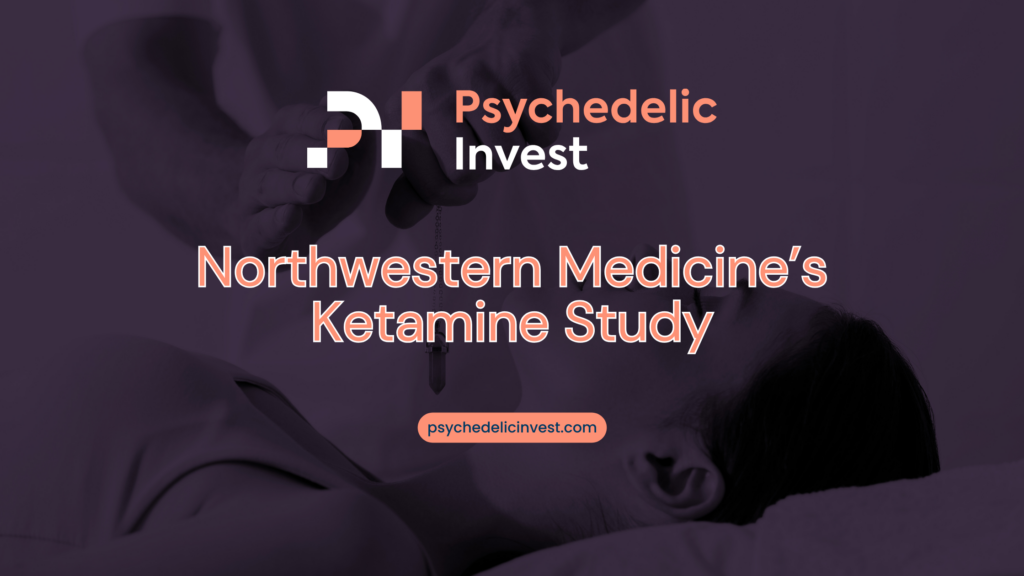Psychedelics
Ketamine’s Short and Long-Term Effects on Depression
A groundbreaking study by Northwestern Medicine has unveiled the intricate processes that enable ketamine to produce both immediate and enduring antidepressant…

A groundbreaking study by Northwestern Medicine has unveiled the intricate processes that enable ketamine to produce both immediate and enduring antidepressant effects. This breakthrough could lead to the development of novel, safer depression therapies. Distinct from conventional antidepressants, which often require weeks to manifest effects, ketamine offers rapid relief and maintains its benefits over time, solving a long-standing puzzle in the scientific community.
Rapid Relief through Neuronal Activation
The research identifies that ketamine’s quick antidepressant properties stem from the activation of existing immature neurons in the brain, likened to ‘adolescents rapidly exchanging texts,’ which promotes swift communication and immediate alleviation of symptoms. This is particularly vital for individuals suffering from severe depression, as it provides an urgent support system that could significantly lower suicide and mortality rates during critical phases.
Enduring Effects via Neuronal Development
Furthermore, ketamine’s lasting benefits are linked to the proliferation of new neurons, a process requiring time for these cells to develop fully. This enduring impact is crucial for the long-term management of depression, offering a glimmer of hope for continuous improvement. The research underscores that this prolonged effect occurs through the BMP signaling pathway in the hippocampus, representing a groundbreaking discovery that mirrors the mechanism of traditional antidepressants but through a distinctive route.
Pathway to Safer Treatment Options
Although ketamine’s efficacy is clear, its potential for harmful side effects limits its widespread use, underscoring the urgency for safer alternatives. The newfound understanding of ketamine’s mechanism of action heralds the possibility of creating non-toxic therapies that deliver both immediate relief and sustained recovery from depression. Dr. John Kessler, the lead researcher, views this as a ‘significant leap forward’ in mental health care, illuminating a path for those with treatment-resistant depression. The study’s insights into ketamine’s unique dual-action mechanisms are pivotal for innovating antidepressant treatments that are quick to act and have lasting benefits without adverse risks.
The implications of this study extend far beyond individuals battling depression, offering the medical field a new perspective on treatment possibilities. By elucidating how ketamine achieves its unique effects, the research opens new pathways for developing therapeutic strategies that could revolutionize the approach to treating depression, marrying the benefits of immediate response and sustained effect without the downsides. This advancement signals a hopeful future in the ongoing fight against depression.

-

 Psilocybin1 week ago
Psilocybin1 week agoAre Shrooms Legal in Oregon: Full Guide
-

 Psychedelics1 week ago
Psychedelics1 week agoAtai Life Sciences Announces the Publication of Beckley Psytech’s Phase 1 Study of BPL-003 in the Journal of Psychopharmacology
-

 Law & Regulation1 week ago
Law & Regulation1 week agoClearmind signs agreement with Hebrew University for psychedelic compound rights
-

 Psilocybin1 week ago
Psilocybin1 week agoCalifornia advances bill for psychedelics centers
-

 Psychedelics1 week ago
Psychedelics1 week agoCybin Announces Publication of Research Manuscript in the Journal of Medicinal Chemistry
-

 Psychedelics1 week ago
Psychedelics1 week agoPsychedelics Can Offer More Than Therapy On Its Own
-

 Psychedelics1 week ago
Psychedelics1 week agoRevive Therapeutics Announces FDA Acceptance of Meeting Request for Long COVID Diagnostic Product
-

 Psilocybin4 days ago
Psilocybin4 days agoPassover Perspectives: Psychedelics, Moses, and the Burning Bush








